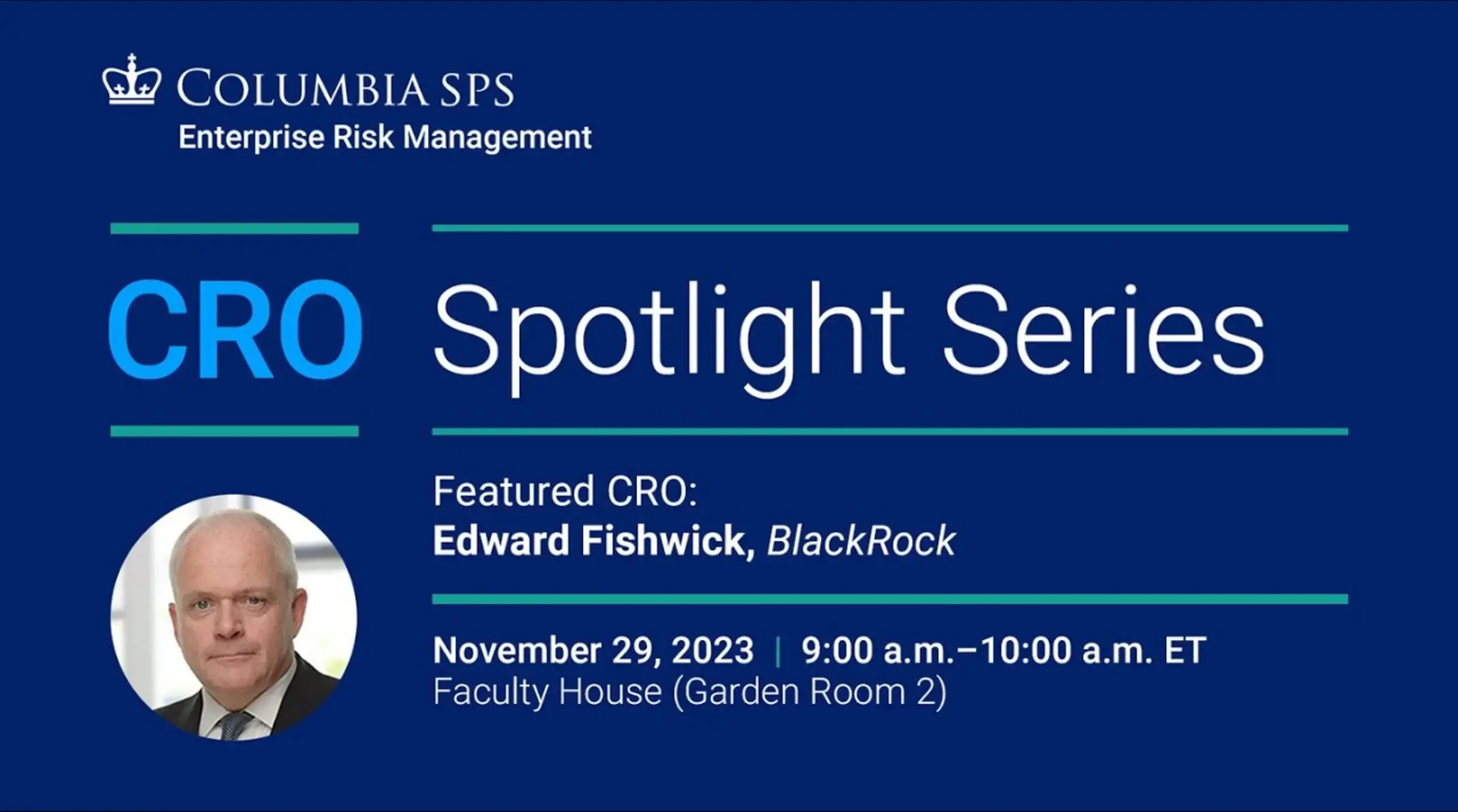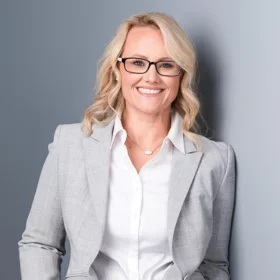You can’t cram for a crisis.
That was the crux of the message that BlackRock Chief Risk Officer Edward Fishwick brought to the Enterprise Risk Management (ERM) program’s recent CRO Spotlight, part of an ongoing series that features one-on-one interviews between ERM leadership and some of the world’s most prominent chief risk officers.
He was given that nugget of wisdom by his predecessor, BlackRock cofounder Ben Golub. Fishwick took over as CRO in 2022. He also serves on the Global Executive Committee, is head of the firm’s Risk and Quantitative Analysis Group, and chairs the Enterprise Risk Management Committee.
Fishwick brought a wealth of experience to the CRO Spotlight, which provides students unique insights into the inner workings of leading firms’ ERM programs as well as direct advice on their careers from future employers.
You need to have technical knowledge, Fishwick advised students entering the field, but also the ability to observe and analyze at a macro level. You need strong communication skills and the ability to explain complicated details to colleagues. As moderator Sim Segal, program director and senior lecturer in the Enterprise Risk Management program, pointed out, that’s something our graduates are well trained in: One of the program’s core courses is Strategic Communications for Risk Professionals.
Most importantly, Fishwick said, “you’ve got to be interested. I do have this idea that there are quite a lot of people who know a lot of stuff and are very good communicators, but they’re not really interested in risk management. And that’s good. Do something else.”
The CRO Spotlight Series forum also offered plenty of practical information for people who are already on the job. Risk management departments need to remain flexible and always work with up-to-date information in order to best serve their firm, Fishwick said. Departments also need to be socialized within the whole of the firm in order to evolve as demands change.
“This is an organic situation,” he said. “Markets change, economics change, things change, and so it needs to be practical. It needs to be honest and realistic and not overly regimented. But it’s a big, complex thing, so you need structure and process.”
It’s all about being prepared for change while hoping such actions aren’t necessary, Fishwick said.
“There is a sense in risk management that what you hope is that nothing happens, and what you hope is that you have systems and processes in place that mean you’re never in a crisis, you’re never in a situation where a massive amount of retooling and reorientation and change and re-resourcing is necessary to fix a problem that has arisen,” he said. “There is a real sense in which risk management is about trying to set up an enterprise and set up a set of portfolios in a way that outcomes are consistent with your risk tolerances.
“The objective is not to not take risks,” he added. “You want to take risks, because this is a business. You’re trying to achieve things, and in order to do that, you have to take risks. But the risks have to be calibrated in such a way that they make sense, that you expect that the return on those risks is commensurate with them.”
After listening to the talk and participating in a question-and-answer session, students were able to interact with Fishwick and Segal at a reception.
“Being able to personally meet a CRO at this level is a rare opportunity for our students,” noted Jay Hirsch, director of administration for Columbia’s ERM program. BlackRock is the world’s largest asset manager, with $9.4 trillion in assets under management as of June 30, 2023, Hirsch said, and being a CRO “is one of the top positions an ERM graduate can aspire to, which made Ed’s appearance quite exciting for the program.”
About the Program
The Master of Science in Enterprise Risk Management (ERM) program at Columbia University prepares graduates to inform better risk-reward decisions by providing a complete, robust, and integrated picture of both upside and downside volatility across an entire enterprise.
Fall 2024 application deadlines for the M.S. in Enterprise Risk Management program are January 15, 2024 for the priority deadline; March 15, 2024 for applicants with international documents; and May 1, 2024 for the final deadline. Learn more here.



